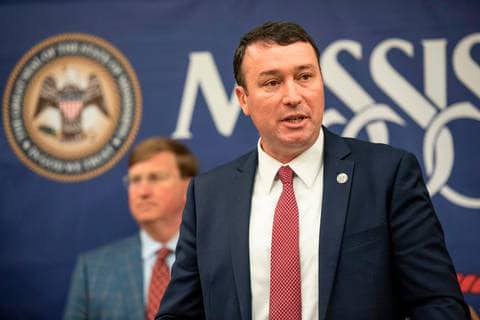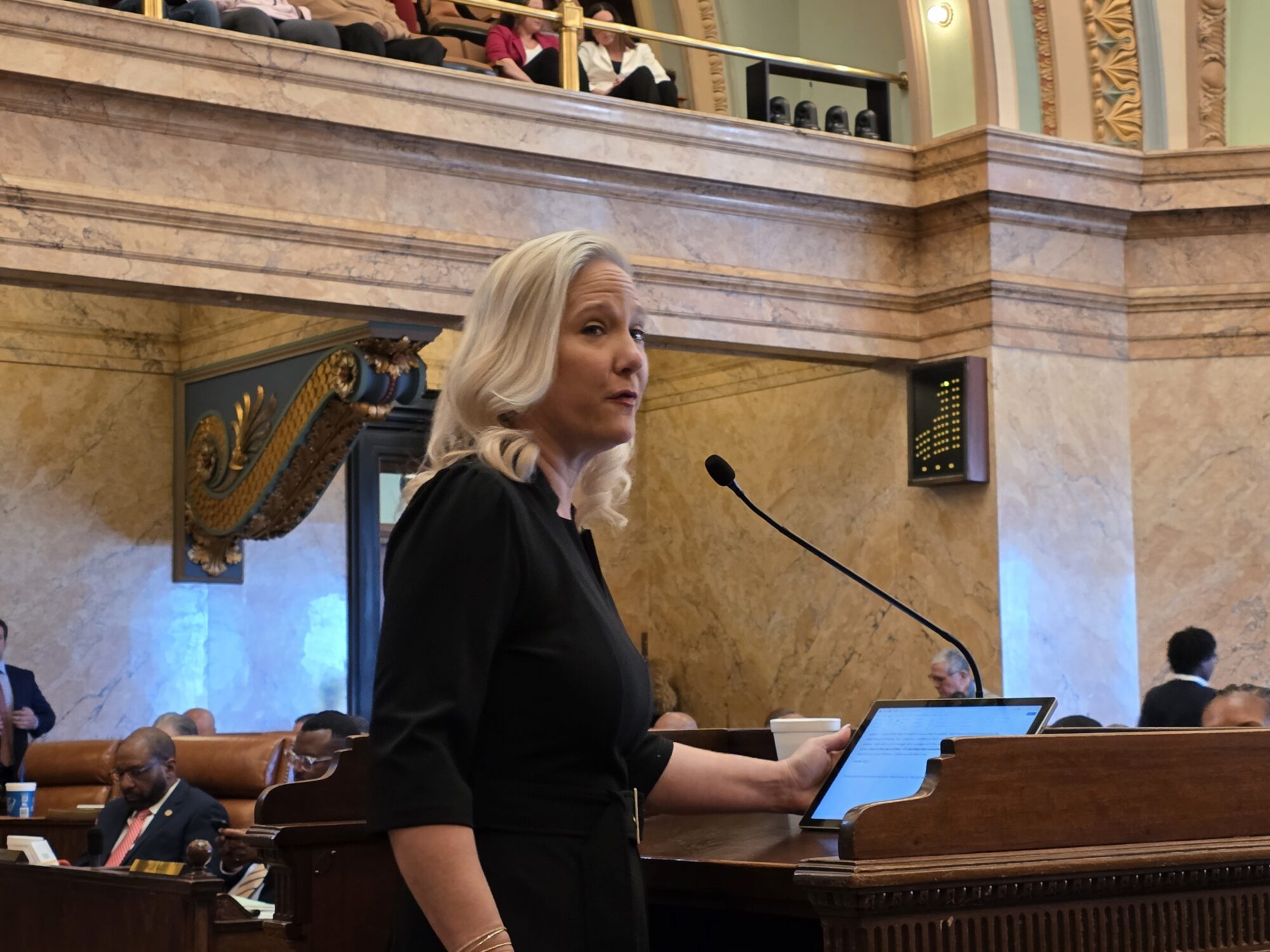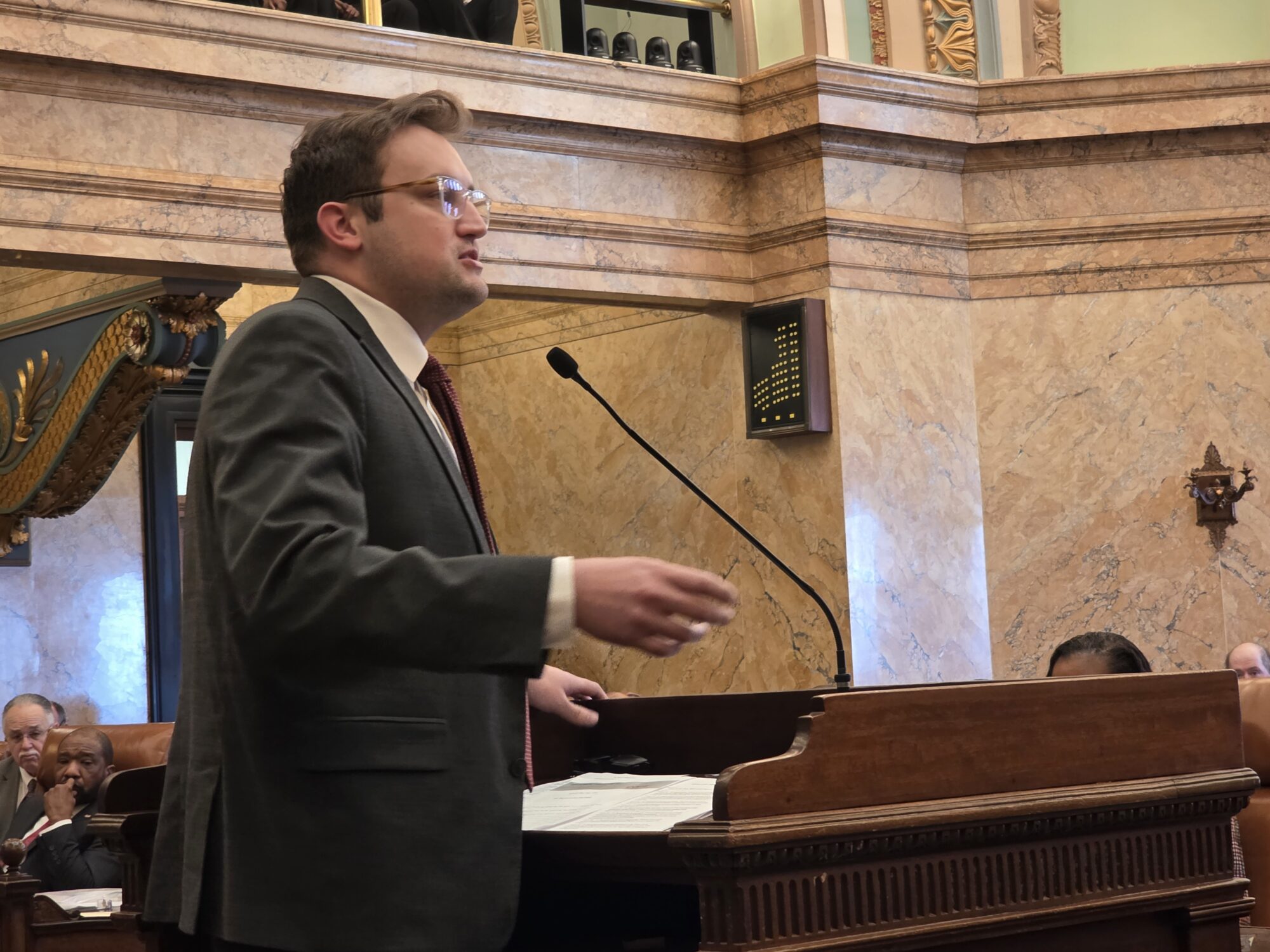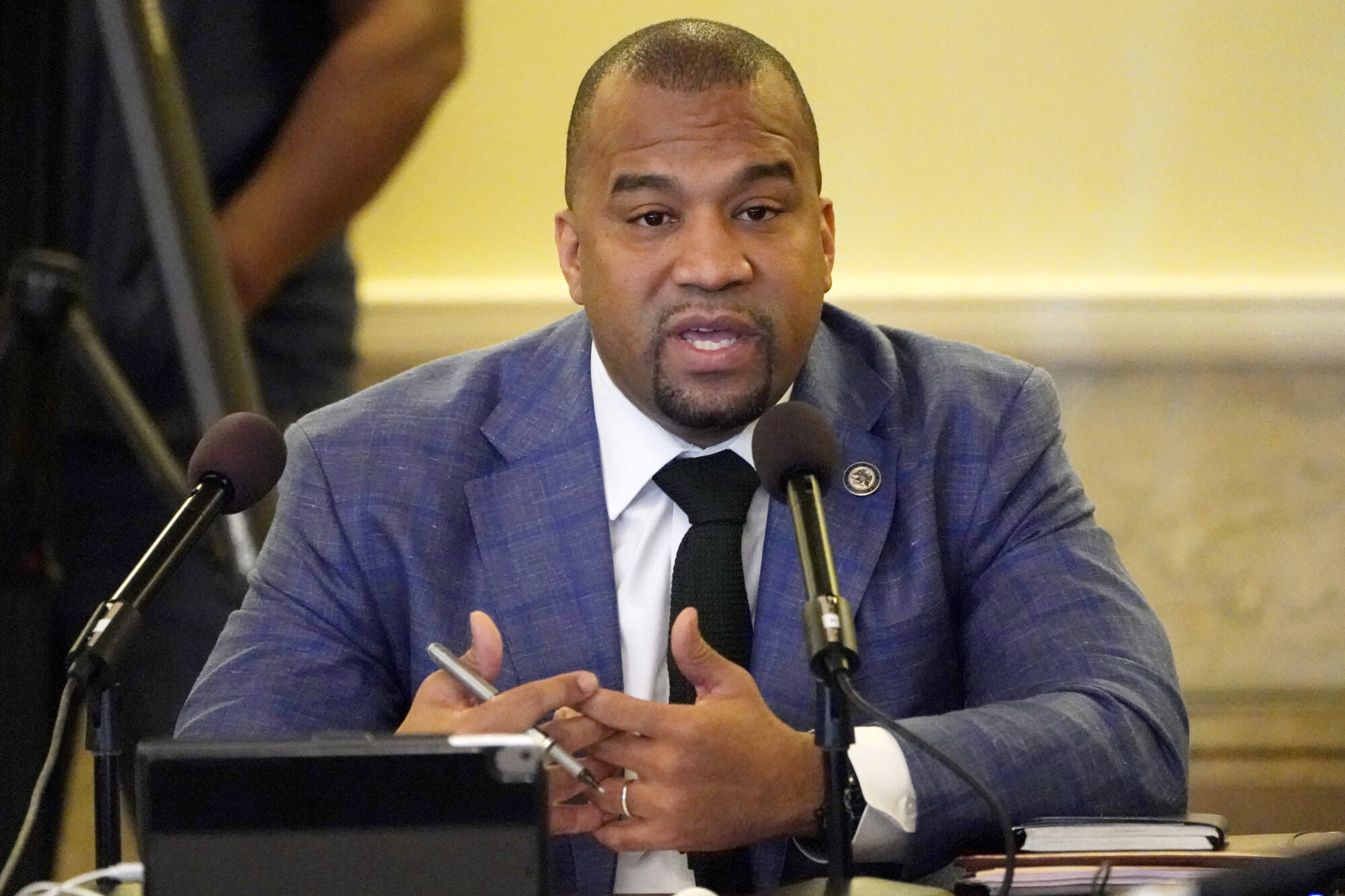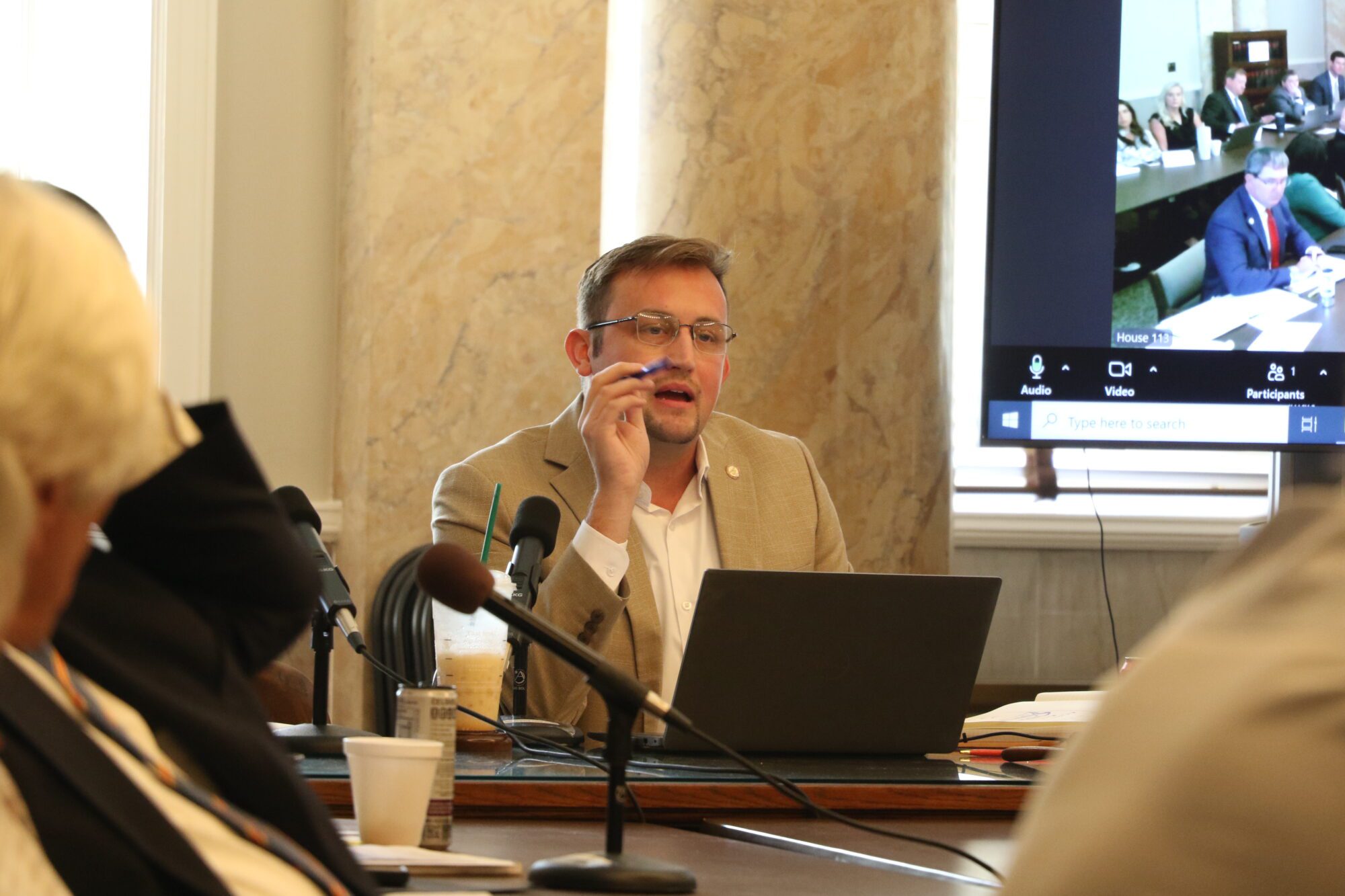
- Involved, economically stable fathers reduce later demand for government social services, lawmakers told.
Mississippi’s new Fatherhood Initiative Program began this year with the goal of encouraging fathers to not only keep up with child support payments, but more importantly be a part of their child’s life.
“Every child deserves a relationship with both parents. Every child,” said House Youth and Family Affairs Chair State Rep. Otis Anthony (D). “The involvement of fathers in the lives of their children is not only beneficial but it is essential.”
According to the National Fatherhood Initiative, when a father is absent from the development of a child, the child is at greater risk of poverty, behavior problems, going to prison, becoming pregnant in their teens, and dealing with abuse and neglect.
According to statistics from 2022, there were 17.8 million American children who did not have a biological, step or adoptive father in their home. Factors that can increase the likelihood the father is involved include having a stable relationship with the other parent, being confident in their parenting abilities, and a lack of visitation restrictions on the part of the custodial parent.
Fatherless households can be found in every demographic, no matter race or socioeconomic background, Rep. Anthony said during a recent House Committee hearing.
In response, Mississippi’s Fatherhood Initiative Program is being administered by the state Department of Human Services. The pilot program is currently available in Harrison, Lee, Madison and Washington counties, with some neighboring counties sending in referrals, said MDHS Executive Director Robert Anderson.
The program helps those who have fallen behind on child support payments for three consecutive months find assistance in hopes of keeping their driver’s license, building job skills, gaining employment, and improving their earning potential in order to meet their obligations.
For those that decide to enroll in the program, the only requirements are that they remain in contact with staff, make agreed upon payments within two months and, if they don’t already have one, obtain a job within 60 days. If the requirements are met, the program can help non-custodial parents have their driver’s license reinstated, Anderson described.
Anderson estimates at least 90 percent of the state’s non-custodial parents are men.
Mississippi’s Fatherhood Initiative program began in July of this year. As such, Anderson was short on statistics to share with lawmakers during last week’s hearing, yet he was able to provide information about the 42 parents who have been referred to the program thus far. He said 12 of the 42 parents are currently in the enrollment process, while three have been successfully enrolled and 26 did not complete the enrollment process.
“We can’t force them to enter the fatherhood initiative. We make it available to them as a resource,” Anderson elaborated. “But if they choose to opt not to be involved, we don’t have any leverage over them, so to speak, in order to make them participate.”
The majority of referrals to date have come from Hinds County (40%), followed by Washington County (25%) and Harrison County (12%). Another 23 percent of the referrals are from neighboring counties.
The Fatherhood Initiative Program also partners with the WIN Job Centers to connect unemployed fathers with gainful employment. However, there are challenges.
“We recently learned the WIN Job Center is not going to continue to be open in Madison County,” Anderson explained. “And that’s a problem. That’s who we were looking to to be our partner, to be our resource. And I think the Department of Employment Security will tell you they’ve had some funding issues, and they’ve had to close a number of WIN Job Centers. Unfortunately, Madison County is one of those.”
Before the program can be implemented statewide, Anderson said additional staff must be hired. He expects the process to take up to three months.
The goal of the program is to not only get non-custodial parents to meet their child support obligations, but more importantly become engaged with their children. With some situations involving a less than cordial relationship between the mother and father, leading the mother to deny visitation, Rep. Anthony asked if the Fatherhood Initiative can assist in those often tense situations.
“There are parents who want to have a relationship with the child, but the system is skewed to custodial parents,” Anthony said.
MDHS Division of Child Support Enforcement Director Denise Wesley said that in those instances their office connects the parent with the Access and Visitation Program, where they are provided with tools such as visitation order documents.
A look at a similar pilot program in Tennessee
Roughly 18 months ago, Tennessee began a pilot program for the city of Memphis referred to as AFIRM – A Father’s Involvement Really Matters. The $25 million program offers non-custodial parents employment training, fatherhood training for 8 weeks, and other services.
Meshia Henderson, Vice President of Workforce Services for Maximus, told Mississippi lawmakers that the state of Tennessee has contracted with her company along with Families Matter, a non-profit, to get the AFIRM program off the ground. The program aims to connect with fathers aged 18 to 40.
“We work with men who are dead broke and not deadbeat dads,” Henderson said. “These fathers are maybe not working, they have a criminal background, are a justice involved individual, but they have a child support order.”
By helping those fathers become economically stable, they are then able to consistently provide child support payments and reduce later demand for other government social services.
The program in Tennessee found that fathers often had a tough time working with the mother of the child. During focus groups in the Volunteer State, Henderson reported that fathers who do not have custody report feeling undervalued.
“They were really looked at as more of, ‘When are you going to pay your support?’ when they actually want relationships with their families and with their children,” Henderson added.
Communication also becomes a barrier to forming a cordial relationship with the custodial parent. AFIRM provides training in the 8-week fatherhood program that addresses communication barriers mothers may establish when preventing access to the child.
“We’re teaching them to change the language, we’re teaching them about how to communicate and better communicate and how to become more connected with the families,” Henderson described.
Tennessee’s program has enrolled more than 670 fathers within Memphis. The pilot program focused on the city because it has one of the largest child support caseloads in the nation, Henderson said. Of the nearly 700 enrollees, 58 percent graduated from the fatherhood program, 31 percent signed a coparenting agreement with the custodial parent, and 32 percent rightsized their child support orders.
Dwayne Brown, Project Manager in Workforce Services for Maximus, described how helping fathers meet their financial obligations helps break a troublesome cycle.
“If the adage is true that hurt people hurt people, then it’s probably also true that missing fathers produce missing fathers,” Brown said.
He added that several years ago the majority of child support cases were the result of divorce, but today more and more cases are simply the result of a temporary relationship between the mother and father that led to pregnancy. Those situations often mean the father is unprepared for the responsibilities fatherhood brings. When the father is able to be involved in the child’s life, the men become more invested overall.
“That participation in that child’s life to some degree, and it may sound counterintuitive, actually makes that individual want to pay more because they’re seeing the fruits of that labor, if you will,” Brown described.
